2014 CIMdata PLM Certificate Program Training Seminar (China) Successfully Hosted
14-16 May 2014, Suzhou—e-works, Chinese Digital Enterprise Portal announced the successful conclusion of the 2014 CIMdata PLM Certificate Program Training Seminar. The three-day training program was hosted in Suzhou and it was the second year CIMdata and e-works working together on the program.
This advanced and systematic training seminar has attracted more than 50 PLM technical staff from manufacturing enterprises in aerospace and defense, electromechanical and automotive and PLM vendors PTC, Dassault System, SIPM, and Beijing Shenzhou Aerospace Software.
Mr. Peter Bilello is the speaker of the second day and third day sessions. On the second day sessions he talked around PLM implementation, monitoring and continuous improvement, PLM process development and testing, integrating PLM within the enterprise, and configuration management role in PLM. In the session 5, topics like how to use project management to continuously define and improve PLM planning, key points in implementation planning, and how to deal with change, data migration, customization, and training and support etc. Session 6 includes how to develop process requirements into technical specifications that are to be implemented and verified, the development and refinement of process flows and their associated Use Cases, the differences & inter-relationship among the different tests, good process owners and what their responsibilities, and process ownership and continuous improvement.
Session 7 includes PLM's role in enterprise IT landscape and how to optimize the integration of PLM with other systems like ERP and CRM. Session 8 defines configuration management and its core elements such as configuration items, change management, and effects.
Through the two days of basic PLM lectures, in the third day, advanced PLM sessions include data modeling with PLM, PLM and enterprise program management, and requirement management. Session 9 include three components of PLM data modeling and data modeling cases, refined requirements of data modeling, and main steps. Session 10 includes how to realize enterprise program management with PLM. In session 11, Mr. Bilello defines requirements management and how to use PLM do requirements management.
In the final session, Mr. Bilello summarized the whole training lectures, then trainees had a individual test. Some of them are very happy to get CIMdata PLM Certificate
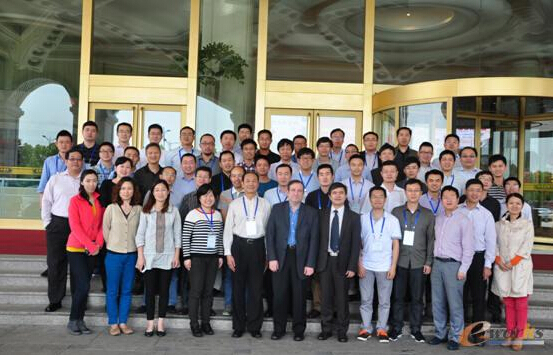
Group photo of 2014 CIMdata PLM Certificate Program
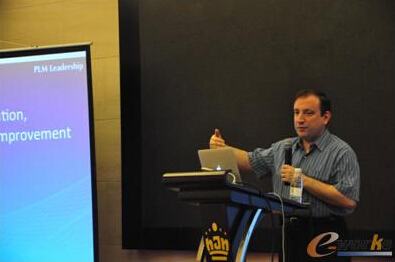
Mr. Peter Bilello, President of CIMdata
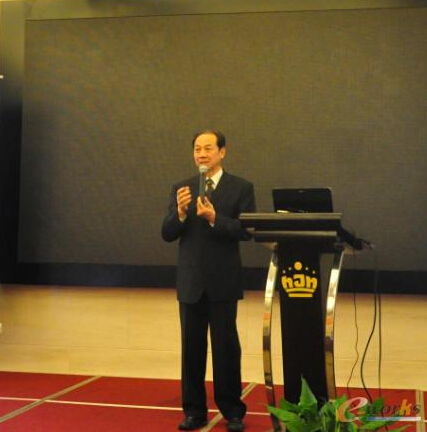
Professor Xinnong Mo, PLM expert
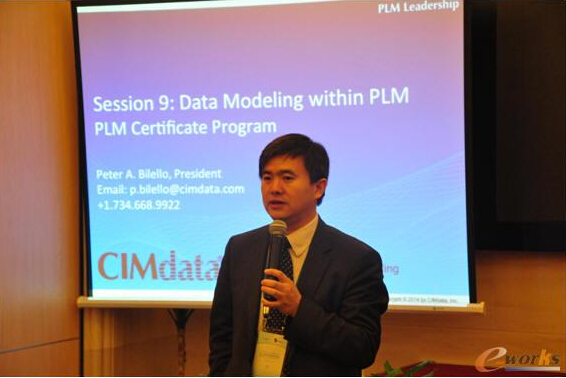
Dr. Pei Huang, e-work CEO

Mr. Peter Bilello is the speaker of the second day and third day sessions. On the second day sessions he talked around PLM implementation, monitoring and continuous improvement, PLM process development and testing, integrating PLM within the enterprise, and configuration management role in PLM. In the session 5, topics like how to use project management to continuously define and improve PLM planning, key points in implementation planning, and how to deal with change, data migration, customization, and training and support etc. Session 6 includes how to develop process requirements into technical specifications that are to be implemented and verified, the development and refinement of process flows and their associated Use Cases, the differences & inter-relationship among the different tests, good process owners and what their responsibilities, and process ownership and continuous improvement.
Session 7 includes PLM's role in enterprise IT landscape and how to optimize the integration of PLM with other systems like ERP and CRM. Session 8 defines configuration management and its core elements such as configuration items, change management, and effects.
Through the two days of basic PLM lectures, in the third day, advanced PLM sessions include data modeling with PLM, PLM and enterprise program management, and requirement management. Session 9 include three components of PLM data modeling and data modeling cases, refined requirements of data modeling, and main steps. Session 10 includes how to realize enterprise program management with PLM. In session 11, Mr. Bilello defines requirements management and how to use PLM do requirements management.
In the final session, Mr. Bilello summarized the whole training lectures, then trainees had a individual test. Some of them are very happy to get CIMdata PLM Certificate
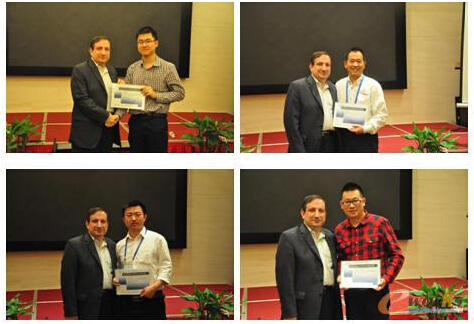
Mr. Bilello issuing PLM Certificate








